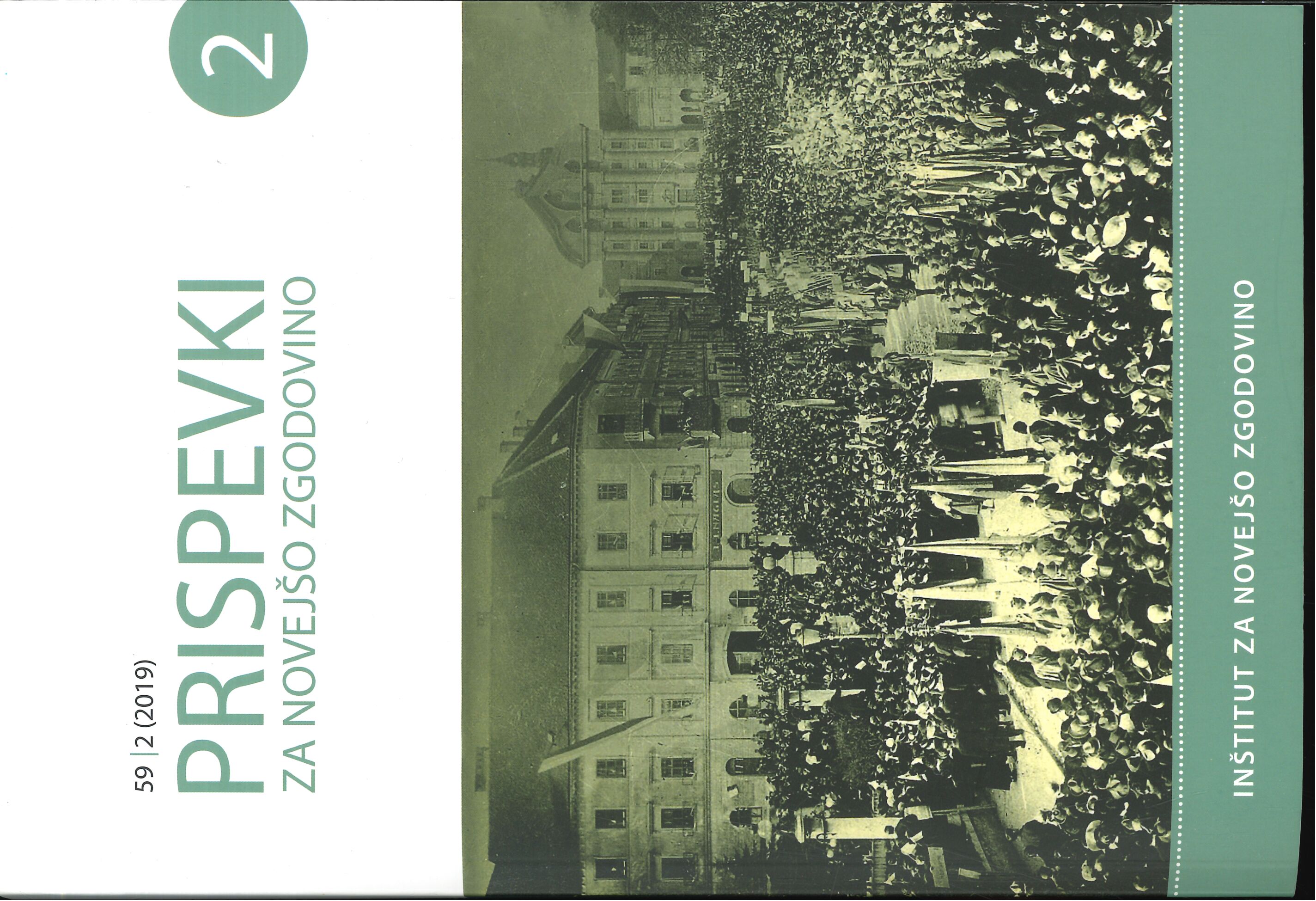Professors Ivan Žolger, Ivan Tomšič ans Stanko Peterin and their Contributions to the Creation of the Slovenian Statehood
DOI:
https://doi.org/10.51663/pnz.59.2.05Keywords:
international law, creation, continuity and the dissolution of a State, Paris Treaties of Peace 1919-1920, annexationAbstract
The article is dedicated to the 100th anniversary of the first Slovenian National government and the 100th anniversary of the Faculty of Law, University of Ljubljana. On 31 October 1918, the National Government in Ljubljana was nominated by the National Council of Slovenes, Croats and Serbs, the governing body of the newly created State of Slovenes, Croats and Serbs with a seat in Zagreb. The National Government had de facto administered the territory of the Austrian province of Carniola and part of Styria until 1 December 1918, when the State of Slovenes, Croats and Serbs united with the Kingdom of Serbia into the newly created Kingdom of Serbs, Croats and Slovenes. The two centenaries are intertwined as some Faculty of Law Professors participated as delegates at the Paris Peace Conference in 1919-1920. At the outset, the State of Slovenes, Croats and Serbs and the National Government in Ljubljana are analysed from the international legal perspective. The State of Slovenes, Croats and Serbs fulfilled the criteria of a State under international law although it was not recognized by the allied and associated powers. On the other hand, the National government did not meet such prerogatives. In addition, three articles, written by Professors Ivan Žolger, Ivan Tomšič and Stanko Peterin are presented. These articles describe the existence of Yugoslavia from 1918–1992 and its transition from a unitary to a federal State. The process of dissolution of the Yugoslav federation gave rise to the creation of sovereign and independent Slovenia in 1991.
References
Andrassy, Juraj. Međunarodno pravo. Zagreb: Školska knjiga, 1976.
Bartoš, Milan. Međunarodno javno pravo, 1. knjiga. Beograd: Kultura, 1954.
Brownlie, Ian. »Ex iniuria jus non oritur.« British Yearbook of International Law-BYIL, (1982): 202–204.
Celar, Branko. Slovenija in njene meje. Ljubljana: Visoka policijsko-varnostna šola pridružena članica Univerze v Ljubljani, 2002.
Duroselle, Jean-Baptiste. Le conflit de Trieste 1943–1954. Bruxelles: Editions de l'Institut de sociologie de l'Université libre de Bruxelles, 1966.
Kacin Wohinz, Milica in Nevenka Troha, ur. Slovensko-italijanski odnosi 1880–1956 = I raporti italo-sloveni 1880–1956 = Slovene-Italian relations 1880–1956 : Poročilo slovensko–italijanske zgodovinsko – kulturne komisije = Relazione della commissione storico-culturale italo-slovena = Report of the Slovene-Italian historical and cultural commission : Koper – Capodistria, 14. julij – luglio – July 2000 (Ljubljana: Nova revija, 2001).
Lipušček, Uroš. Prekmurje v vrtincu Pariške mirovne konference. Petanjci: Ustanova dr. Šiftarjeva fundacija, 2019.
Lipušček, Uroš. Sacro egoismo. Slovenci v krempljih tajnega Londonskega pakta. Ljubljana: Cankarjeva založba, 2012.
Peterin, Stanko. »Naša državnost in pravda za našo zahodno mejo«. Primorska srečanja (september 1978): 7–15.
Petrič, Ernest, Golec, Boris, Bajc, Gorazd in Andrej Rahten. Slovenci v očeh Imperija. Priročnik britanskih diplomatov na Pariški mirovni konferenci leta 1919 = The Slovenes in the eyes of the Empire. Handbooks of the British diplomats attending the Paris Peace Conference 1919. Mengeš: Ustanova za evropsko prihodnost, 2007.
Prunk, Janko. »V mesecu dni iz ene države v drugo in iz enega civilizacijskega kroga v drugega.« Delo, Sobotna priloga, 3. 11. 2018, 13.
Tomšič, Ivan. »Identity of the Yugoslav State under International Law.« Jugoslovenska revija za međunarodno pravo-JRMP 1, 15–27. Beograd, 1956.
Türk, Danilo. Temelji mednarodnega prava [2. pregledana in dopolnjena izdaja]. Ljubljana: GV, 2015.
Vodopivec, Peter. Od Pohlinove slovnice do samostojne države. Ljubljana: Modrijan, 2007.
Žolger, Ivan. »Da li je naša kraljevina nova ili stara država«? Slovenski pravnik, 37, št. 3-4 (1923): 68–85.
Downloads
Published
Issue
Section
License
Authors who publish with this journal agree to the following terms:
- Authors retain copyright and grant the journal right of first publication with the work simultaneously licensed under a Creative Commons Attribution License that allows others to share the work with an acknowledgement of the work's authorship and initial publication in this journal.
- Authors are able to enter into separate, additional contractual arrangements for the non-exclusive distribution of the journal's published version of the work (e.g., post it to an institutional repository or publish it in a book), with an acknowledgement of its initial publication in this journal.
- Authors are permitted and encouraged to post their work online (e.g., in institutional repositories or on their website) prior to and during the submission process, as it can lead to productive exchanges, as well as earlier and greater citation of published work (See The Effect of Open Access).


